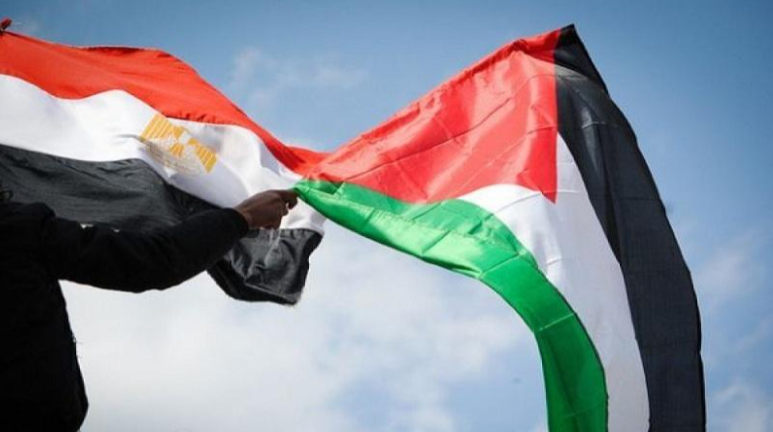Despite my attempts to refrain from discussing the specifics of the military operations between Israel and the Gaza Strip during this war, the seventh between Israel and the Gaza Strip since 2008, I feel compelled to shed light on one crucial fact: the Israeli bombing of Gaza is unprecedented and follows a catastrophic military failure suffered by Israel. This altered the course of events from the typical phase of intense bombing to one of maximizing area destruction and casualties while preparing for a ground battle whenever the conditions were favorable.
In this conflict, Israel utilized both internal and external strategies. Internally, it declared war and formed an emergency government; externally, the United States provided urgent support that forced the evacuation of 400,000 Gazans to makeshift shelters in the center and south of the Gaza Strip.
Egypt is in close proximity to these events, and Cairo has taken action since day one to halt the ongoing escalation. With Israel ramping up its operations and implementing a policy of collective punishment against the Palestinian population, as evidenced by the cutting off of electricity and water, the depletion of food supplies, and the bombing of the Palestinian Rafah crossing, the political leadership has stepped up its regional and international movements in an effort to bring in aid to save the Palestinians from a horrific humanitarian catastrophe.
President Abdel-Fattah Al-Sisi was keen to announce the determinants of Egypt’s response to the events, and I will focus on the three most important messages that he emphasized: 1) the need to watch out for attempts to liquidate the Palestinian cause; 2) the need to get civilians out of the vicious cycle of retaliation and eschew policies of collective punishment, siege, and displacement; and 3) Egypt’s strategic priorities and desire for peace demand that it not abandon the Palestinians.
Looking more closely at these statements, I find that they all reiterate Egypt’s firm stance on the Palestinian cause, a stance that has not changed and will not change, especially in terms of Egypt’s refusal to abandon the Palestinians. The Palestinian cause is indeed Egypt’s foremost foreign policy priority. The ultimate goal of Egypt is the establishment of an independent Palestinian state with East Jerusalem as its capital. In light of this, President Al-Sisi issued a stern appeal to all the involved parties, cautioning them against attempting to liquidate the Palestinian cause.
In this regard, it is crucial for the Egyptian public to comprehend the significance of the Gaza Strip to Egypt, and here I would like to highlight six points:
- The Gaza Strip falls within the direct sphere of Egyptian national security. The length of the border between Egypt and the Gaza Strip is only 14 kilometers, so Egypt will not tolerate any security threats emanating from the Gaza Strip.
- Egypt acknowledges the West Bank and Gaza Strip as the borders of the Palestinian state, in line with the international community’s position. In addition, one of the Oslo Accords’ clauses stipulated that the West Bank and Gaza constitute a single geographic and political entity.
- Egypt categorically rejects all forms of Gaza Strip independence. To that end, it actively pursued Palestinian reconciliation and, in May 2011, achieved a comprehensive agreement to permanently end the division. Unfortunately, however, it has not yet been put into effect.
- Egypt has suffered greatly as a result of the deteriorating security situation in North Sinai, which served as a terrorist hub, and has made progress in securing the region and sealing tunnels. Therefore, it will under no circumstances permit a resurgence of terrorism or a deterioration of security in Sinai.
- The Rafah border crossing, which is the primary point of departure for thousands of Palestinians leaving Gaza, is located on Egyptian territory, and the political leadership has issued orders to permanently open the crossing and use it to deliver aid to Gaza.
Throughout the course of the Palestinian-Israeli conflict, Egypt has never hesitated to provide all possible support for the Palestinian cause and to defend it in every regional and international forum. We should not forget that Egypt played a pivotal role in the truces between Israel and the Gaza Strip during the previous wars, as well as in the completion of the Gilad Shalit prisoner exchange deal, which resulted in the release of over a thousand Palestinian hostages in November 2011. In addition, Egypt has allocated $500 million for the reconstruction of Gaza and has implemented numerous projects within that framework.
As such, Egypt views these escalating events as a perilous shift in the direction of the Palestinian cause and a precursor to the Gaza Strip’s being caught in the collective punishment in all of its guises. Such a circumstance will worsen the plight of the roughly 2.5 million Gazans, who are already living in precarious conditions. Additionally, this might force thousands of them to relocate to the North Sinai, a move that Cairo rejects for the following reasons:
- Egypt opposes any Israeli policies that would uproot the Palestinian population, whether in the Gaza Strip or East Jerusalem (the Sheikh Jarrah neighborhood).
- Egypt has consistently provided prompt humanitarian assistance to the people of Gaza, most notably by opening its hospitals to treat the injured and ill within agreements with the relevant Palestinian authorities.
Ultimately, I have two messages to convey: the first is to Israel, warning that any attempt to liquidate the Palestinian cause will fail; the second is to the Palestinians in Gaza, the West Bank, and Jerusalem, urging them to hold onto their land as the main step towards establishing a Palestinian state and reassuring them that Egypt will not leave them alone as they work to establish a Palestinian state by retaining control of the occupied territories.












